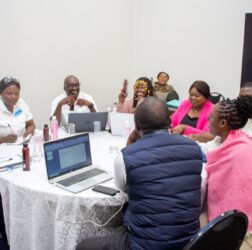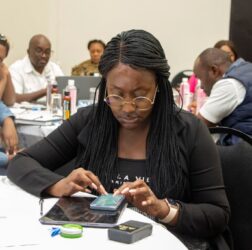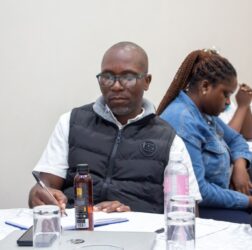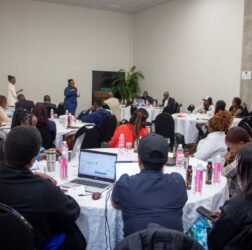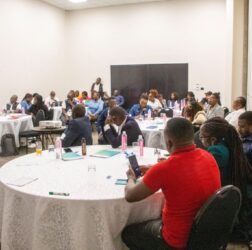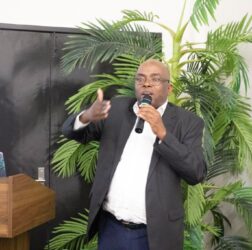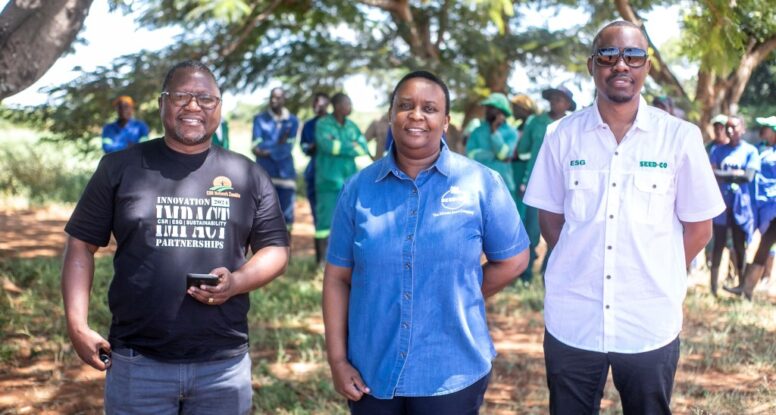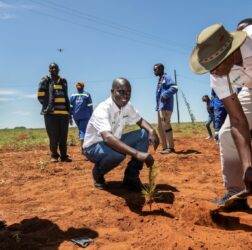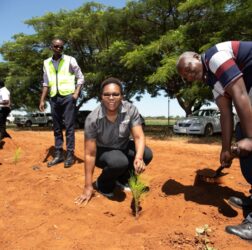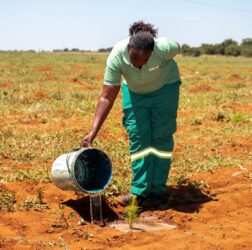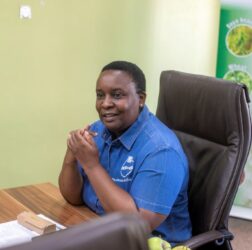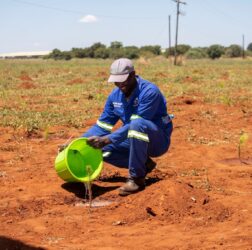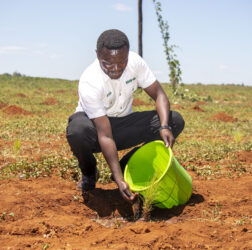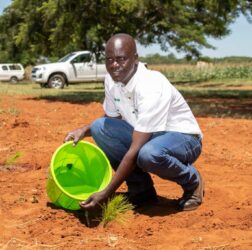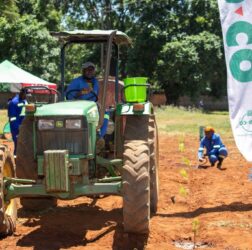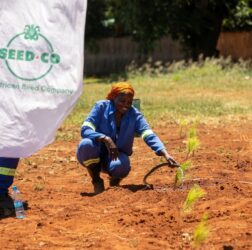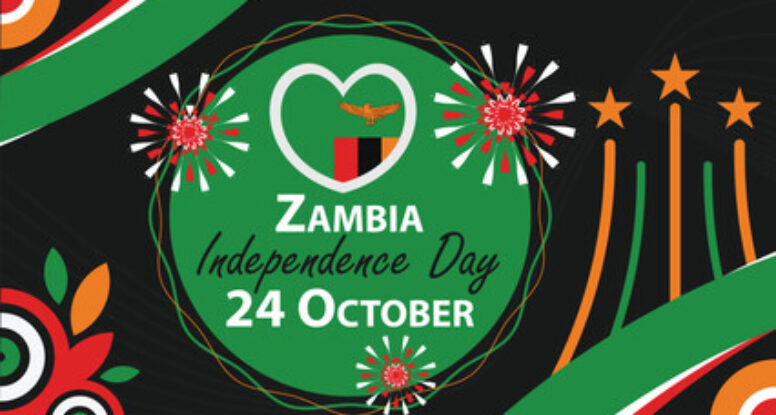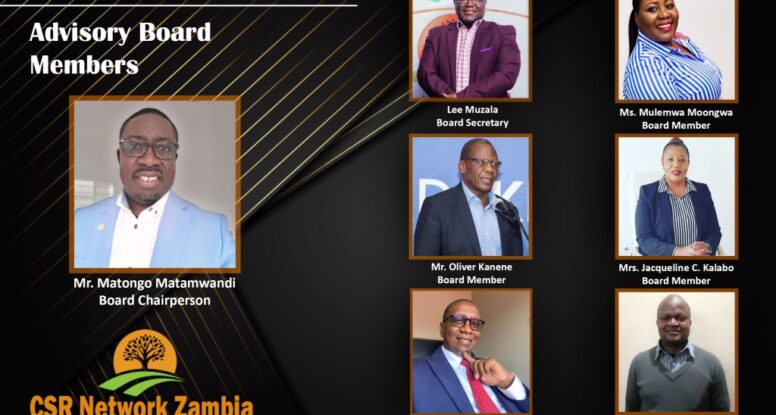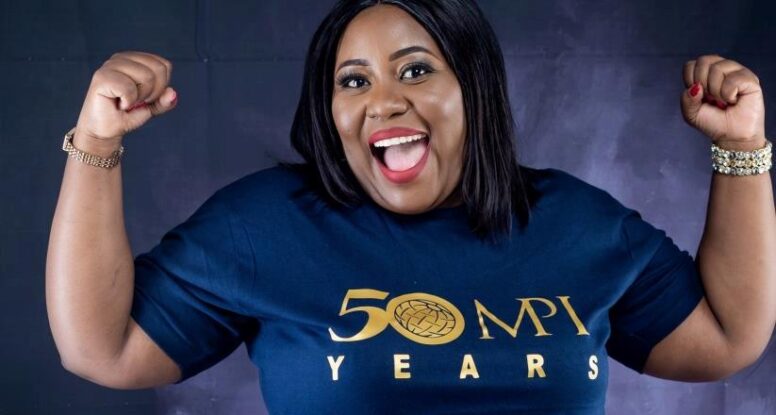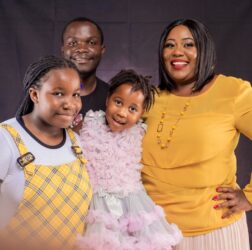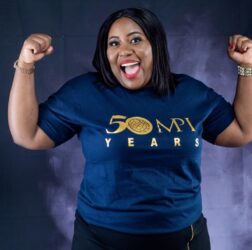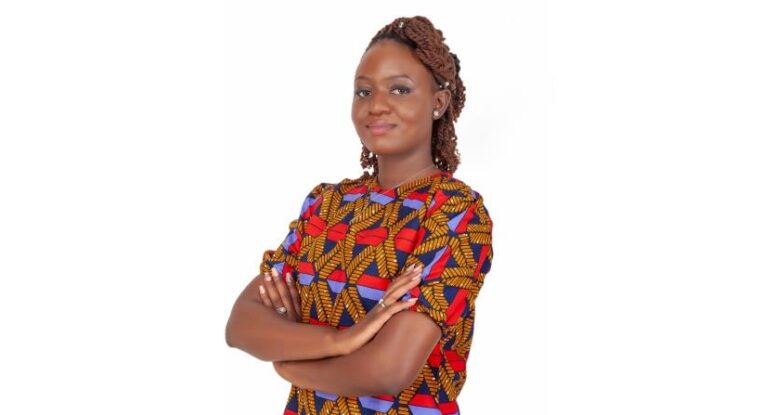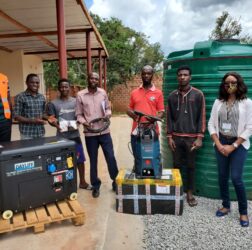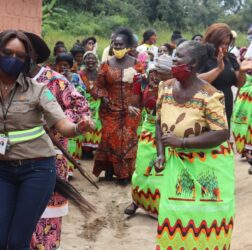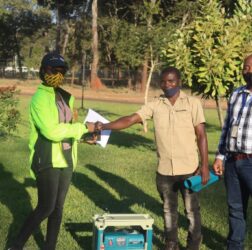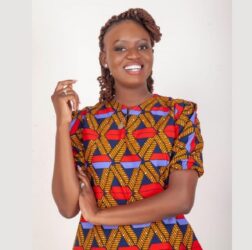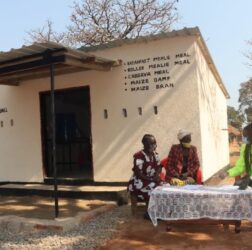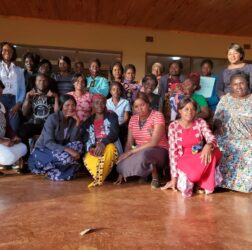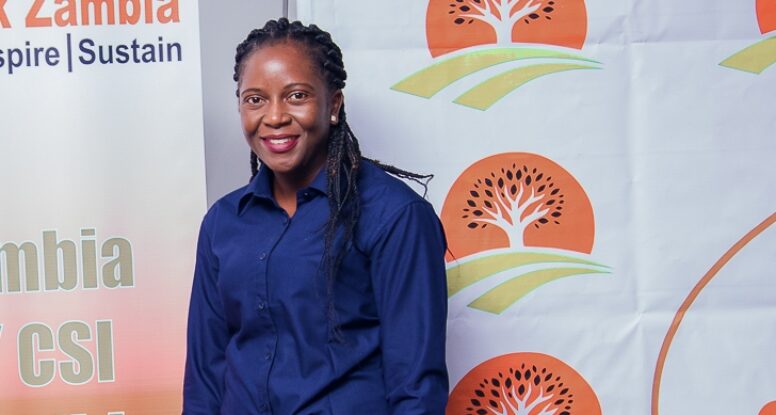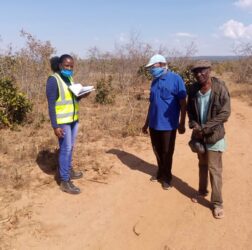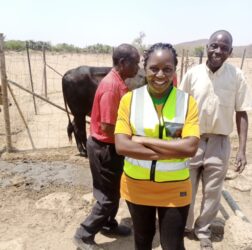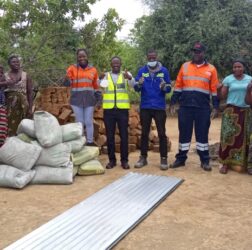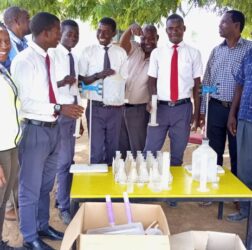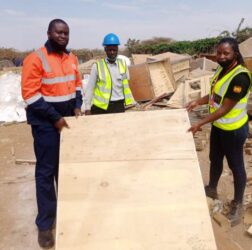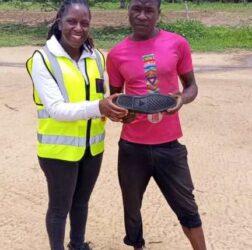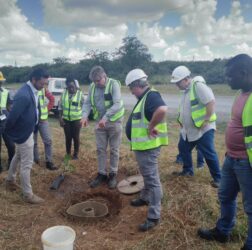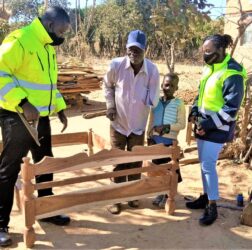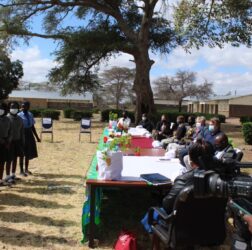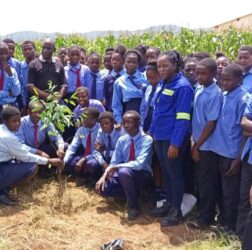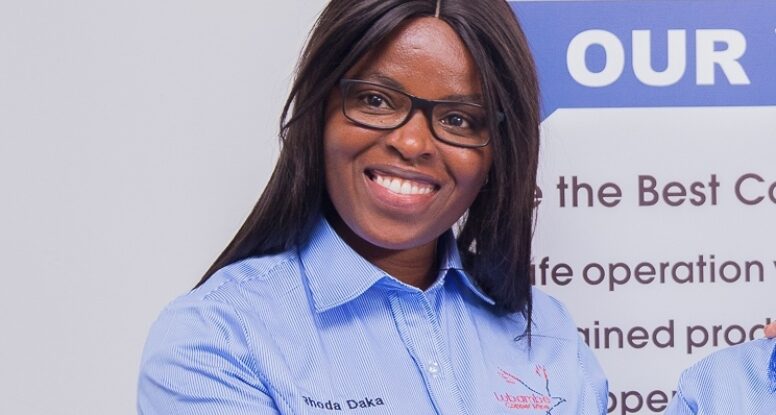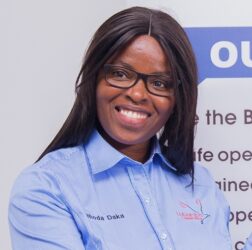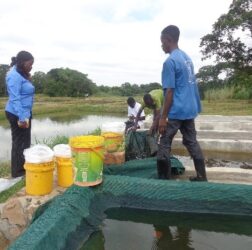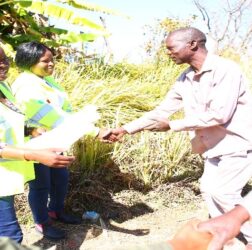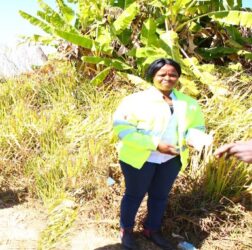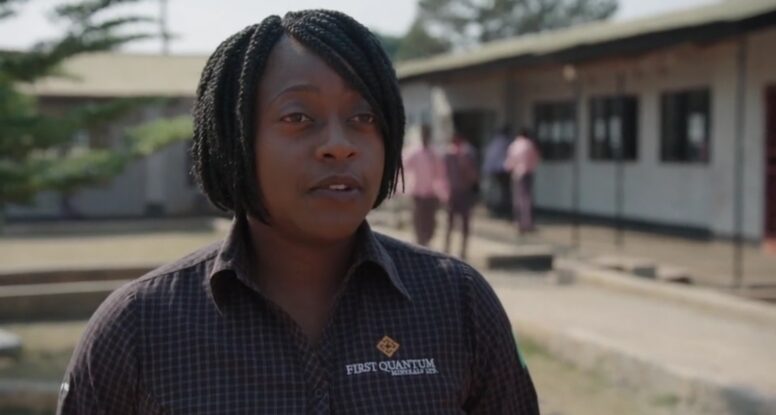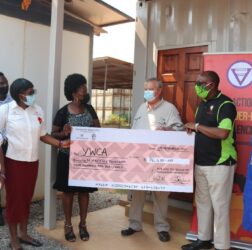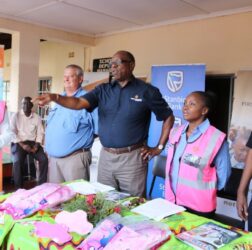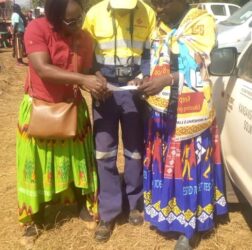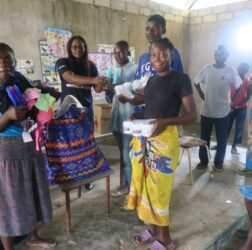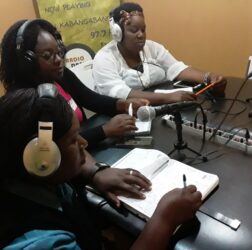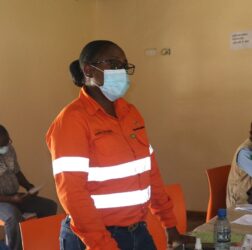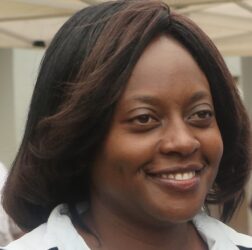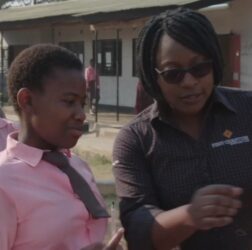Seed Co Group, a leading pan-African seed company founded in 1940 and operating across almost twenty African countries, has embarked on a transformative tree planting initiative aimed at cultivating environmental conservation, employee motivation, community engagement and agricultural sustainability. With a target to plant 500,000 trees over the next five years, Seed Co is taking significant strides towards making a positive impact on the environment and local communities.
On the 20th of March 2024, in commemoration of the International Day of Forests that falls on 21st March every year, Seed Co took a momentous step forward by planting 1,000 pine trees at its Lusaka West location and another 3,000 at its Mkushi Farm. Led by the Managing Director (MD), Mrs. Grace Bwanali, and accompanied by key members of the management team, including Human Resource (HR) Manager Mr. Nyambe Mubita and Safety Health Environment and Quality (SHEQ) Manager Mr. Kerry Sankalimba, the Tree Planting Project was officially inaugurated.

CSR Network Zambia, represented by the Executive Director Mr. Lee Muzala and the Media Hub Team, was present to witness and cover the launch and document the planting process. In his remarks during a briefing with the MD and her management team, Mr. Muzala commended Seed Co for its ambitious tree planting initiative, emphasizing the significance of such projects in contributing to both national and global environmental targets. With Seed Co’s commitment to planting a variety of 500,000 trees over the next five years, it’s estimated that a considerable acreage of land will be covered. Using a spacing of 2.5 meters between plants and 3 meters between rows, the initiative is projected to encompass approximately 375 hectares of land. This scale of reforestation effort underscores Seed Co’s dedication to environmental conservation and underscores the potential impact of corporate-led initiatives in addressing pressing environmental challenges.
Seed Co’s tree planting initiative also aligns with broader regional and global commitments, such as the African Forest Landscape Restoration Initiative (AFR100), a pan-African effort to restore 100 million hectares of degraded and deforested landscapes by 2030. By participating in AFR100, corporates like Seed Co can play a pivotal role in advancing sustainable land management practices and mitigating the impacts of climate change. Moreover, AFR100 offers a framework for collaboration
between governments, civil society and the private sector, emphasizing the importance of multi-stakeholder partnerships in achieving landscape restoration goals.
Participation in AFR100 provides corporates with several benefits beyond environmental stewardship. By investing in reforestation and restoration efforts, companies can enhance their CSR profiles, build brand reputation, and strengthen stakeholder relationships. Furthermore, reforestation projects can create opportunities for community engagement, job creation and socio-economic development, contributing to shared prosperity and resilience in local communities. Ultimately, AFR100 offers a platform for corporates to demonstrate leadership in sustainability and contribute to broader efforts to build a more resilient and sustainable future for Africa and the world.
The Seed Co MD, in her address to the gathered employees, emphasized the significance of each individual’s role in nurturing the planted trees. She encouraged staff members to take ownership of the trees they were planting, underscoring the long-term benefits of tree planting for future generations. Trees, she emphasized, are vital for mitigating climate change, preserving biodiversity and enhancing the quality of life for communities.
The initiative extends beyond planting to encompass meaningful community engagement, with a focus on empowering local stakeholders and communities. In addition to its direct tree planting efforts, Seed Co Group has devised strategic approaches to engage farmers and traditional leaders in expanding the reach and impact of its tree planting initiative. One such strategy involves leveraging the company’s established 400 demo-plots, which attract an average of 100 farmers who visit to view the demo crops. Recognizing the potential of these interactions, Seed Co aims to encourage each visiting farmer to plant ten trees, thereby contributing to the overall target of 500,000 trees. By integrating tree planting into these agricultural demonstrations, Seed Co not only expands its reach but also builds a culture of environmental stewardship among farmers.
Furthermore, Seed Co plans to collaborate with traditional leaders in chiefdoms to leverage existing community structures and support networks. Traditional ceremonies held annually present opportune moments to engage community members in tree planting activities. By partnering with traditional leaders, Seed Co can tap into local knowledge and resources while creating a sense of collective responsibility for environmental conservation. Through these partnerships, Seed Co aims to mobilize communities to plant trees and cultivate a deeper appreciation for the importance of sustainable land management practices.
By employing these strategies, Seed Co Group demonstrates its commitment to engaging diverse stakeholders and maximizing the impact of its tree planting initiative. Through collaboration with farmers and traditional leaders, Seed Co seeks to create a ripple effect of environmental awareness and action, ultimately contributing to a greener and more sustainable future for all.
Through collaborations with local leaders and farmers, Seed Co aims to plant trees at its farms and through community initiatives. The company’s agroforestry approach integrates tree planting with agricultural activities, promoting resilient and sustainable farming systems. By strategically planting trees and engaging communities, Seed Co is working towards a greener, more sustainable future for generations to come.
Through initiatives like the tree planting project, Seed Co is not only growing trees but also nurturing a brighter, more sustainable future for Africa and beyond.



